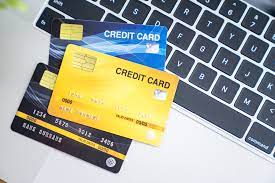Here are some things you should know about a credit card before applying for it:
- Annual fee: Some credit cards have an annual fee, which is a recurring charge that you pay each year for having the card. Annual fees can range from $0 to $500 or more, so it's important to factor this into your decision when choosing a credit card.
- Interest rate: The interest rate is the percentage of the balance that you owe that you will be charged if you don't pay your bill in full each month. Interest rates can vary widely, so it's important to compare rates before you apply for a credit card.
- Rewards: Many credit cards offer rewards, such as cash back, points, or miles, for using the card. The type and amount of rewards that you earn will vary depending on the card.

- Credit limit: Your credit limit is the maximum amount of money that you can borrow on the card. It's important to set a budget and only charge what you can afford to pay off each month.
- Late payment fees: If you don't pay your bill on time, you may be charged a late payment fee. Late payment fees can range from $25 to $35 or more, so it's important to make your payments on time.
- Overlimit fees: If you charge more than your credit limit, you may be charged an overlimit fee. Overlimit fees can range from $25 to $35 or more, so it's important to stay within your credit limit.
It's also important to consider your credit history before you apply for a credit card. Your credit history is a record of your past borrowing and repayment behavior. Lenders use your credit history to assess your creditworthiness, which is their estimate of how likely you are to repay a loan. If you have a good credit history, you'll be more likely to be approved for a credit card with a good interest rate and rewards.
If you're not sure what type of credit card is right for you, it's a good idea to talk to a financial advisor. They can help you assess your needs and goals and recommend a card that's right for you.
Here are some additional tips for choosing a credit card:
- Set a budget: Before you apply for a credit card, decide how much you can afford to spend each month. This will help you choose a card with a credit limit that's right for you.
- Consider your rewards: If you're interested in earning rewards, compare the different types of rewards that are offered by different cards. Some cards offer cash back, while others offer points or miles.
- Read the fine print: Before you apply for a credit card, be sure to read the terms and conditions carefully. This includes the interest rate, fees, and rewards program.
- Use your credit responsibly: Once you have a credit card, use it responsibly by paying your bill on time and in full each month. This will help you build a good credit history.